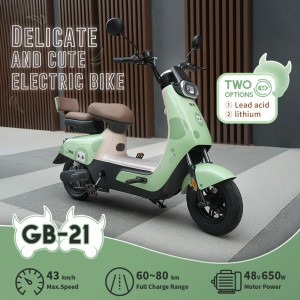Electric bikes are a sustainable mode of commuting and play a vital role in protecting the environment. The urgent need to protect the ecosystem and minimize the emission of harmful substances into the atmosphere, thereby reducing the carbon footprint, highlights the necessity of adopting electric bikes on a global scale.
The global electric bikes market size was valued at USD48.7 billion in 2024 and is expected to reach USD 71.5 billion by 2030,at a CAGR of 6.6%.,during the forecast period 2024-2030. The wordwide demand for e-bikes is growing rapidly as customers see them as an eco-friendly solution for commutes,with rising fuel prices supporting this inclination.
Government laws and terminologies are diverse regarding eBikes.Some counties have national regulations, but states and provinces decide the authority and legal road use regulations.Therefore, any change/update in the regulation of eBikes impacts the market demand. For example, china.,which is one of the largest eBike markets in the world, announced a regulation one Bikes, wherein bicycles are classified as eBikes only if they can pedal assist,have a maximum speed of up to 25 km/h. and have a motor power of up to 400W.Any eBike exceeding 25 km/h is considered a moped.
Similarly Class-ll and Class-lll electric bikes face restrictions in some European and Asia Oceania regions due to their high speeds and use of throttles which can lead to traffic issues.India is an exception, as it permits Class-ll bikes.Most European counties,excluding Italy and the UK, have banned Class-ll e-bikes by European Union regulations.Class-lll electric bikes are not widely available in Europe,In the United States.California does not allow Class-3 electric bikes with throttles, and Colorado and Washington restrict electric bikes with motors exceeding 750 watts.
Globally, the increasing number of countries involved in promoting sustainable electric bikes has accelerated the market demand for electric bikes. Several countries around the world offer tax credits for the purchase of eligible bicycles, and government departments in many cities have begun efforts to build dedicated bike lanes for electric bikes, focusing on strengthening bicycle infrastructure.
High fuel costs and traffic congestion in urban areas force commuters to seek alternative modes of transportation. E-bikes offer a convenient and environmentally friendly way to commute, contributing to the decarbonization of the transportation system, and they provide a cost-effective solution for navigating congested city streets.
- Previous: How long is the service life of an electric motorcycle battery? What is the correct charging method?
- Next: Semi-solid-state batteries: e-bicycle batteries with double the range and endurance
Post time: Jul-16-2024







